|
At the recent #MMX14 we had the opportunity to check in with various of the top media practitioners in South Africa and hear their thoughts on the state of newsrooms. Although the conversations focused on the disruption experienced by global media due to the developments in the digital space, there was a "can-do" spirit among participants, rather than one of despondency.
When faced with disruption we can either choose to embrace and adapt, or fight ... and most probably die fighting. I'm usually all for fighting against the system, and finding ways to be a rebel, but when growth peeks over the horizon, I quickly change my tune in support of disruption. Disruption usually forces more open communication around issues that are usually shrouded in secrecy, politeness or competition. Disruption, while scary, is the stuff of which success stories can be made ... if only we can get past the inherent need for security, and grab with open minds the opportunity for growth and positive change that lies just around the next corner. I've jotted down a few notes using the age-old method of pen and paper, and include them below for your reading pleasure. You're welcome to give me a shout if something in indecipherable, or if you'd like to have some context around the scribbles.
0 Comments
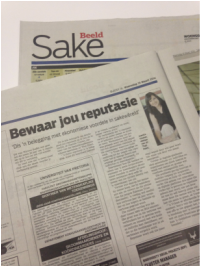 - Hierdie artikel het verskyn in Sake24 op 18 Maart 2014 - “Reputasie is ‘n belegging,” sê Juanita Vorster, eienaar van bemarkingskommunikasie agentskap At That Point. “Die reputasie van ‘n persoon beïnvloed hoeveel hy/sy vertrou word as vriend, raadgewer en werknemer. Dit is dus belangrik om deurgaans tyd te spandeer om jou persoonlike reputasie te bou en verfyn.” “Wanneer ons verwys na iemand se reputasie, verwys ons na ons eie direkte of indirekte ervaring van die persoon,” verduidelik Vorster. “Die beloftes wat die persoon maak oor ‘n tydperk, gekombineer met die uitvoering, of dan nie, van daardie beloftes, is wat op die ou end gesien word as iemand se reputasie.” Werknemers moet bewus gemaak word van die impak van hul persoonlike reputasie opdie van die maatskappy waarvoor hulle werk. ‘n Blasé benadering tot die impak van reputasie is baie gevaarlik, en het al vir menige flaters met ernstige gevolge gesorg, vir beide individue en maatskappye. Mense koop by mense, nie by maatskappye nie Bewyse hiervan word gestaaf deur die uitslae van die 2014 Edelman Trust Barometer, ‘n jaarlikse verslag wat aandui hoe vertroue van jaar na jaar verander, en hoe koper besluite gebasseer word op vertroue. Die nuutste verslag wys dat daar tussen 2009 en 2014 aansienlike groei was in die vertroue wat verbruikers het in gewone werknemers en iemand met wie hulle as individu kan identifiseër, eerder as die boodskappe wat deur middel van advertensie gekommunikeer word. Selfs die hoof van ‘n maatskappy het nie meer die grootste invloed op hoe verbruikers besluite neem nie. Nie net wat gesê word nie, maar wie saam praat Digitale platforms skep geleenthede vir individue en organisasies om te direk kontak te maak met persone en groepe wat gewoonlik ontoeganklik was. Die positiewe gevolg hiervan is maklike toegang na inspirasie, motivering en hulp van verskeie oorde, alles met ‘n minimum moeite. Deur aktief deel te neem aan digitale gesprekke bou ‘n individu sy/haar reputasie, beide in die digitale en fisiese realiteit. “Die gemak van interaksie op digitale platforms dra egter die risiko dat ‘n persoon se reputasie negatief beïnvloed kan word deur nie net dit wat hy/sy self op die platforms plaas nie, maar deur die mense wat hulle toelaat om saam te praat,” waarsku Vorster. “’n Vriend wie se kommentaar afbreek maak aan ander, of fotos van die naweek se sportspan prestasie vieringe wat effe verder gegaan het as wat betaambaar is, of selfs net ‘n boodskap met ‘n swetswoord in wat uit pure frustrasie geplaas is, kan ‘n andersins vlekkelose reputasie beskadig.” “Al hoe meer werkgewers gebruik digitale sosiale platforms soos Facebook, Twitter en LinkedIn om hulle te help om ‘n besluit te neem oor wie die ideale kandidaat vir ‘n pos is. Indien die werkgewer hul persepsie basseer op ‘n werksoeker se aanlyn reputasie, en dit strook nie met die kultuur of verwagting van die werkgewer nie, is die kans dat selfs die aanvanklike perfekte kandidaat nie verder in ag geneem sal word vir die pos nie.” 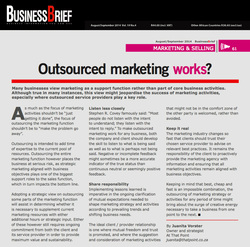 - This article was published in the August/September 2014 edition of BusinessBrief - Many businesses view marketing as a support function rather than part of core business activities. Although true in many instances, this view might jeopardise the success of marketing activities, especially where outsourced service providers play a key role. As much as the focus of marketing activities shouldn’t be “just getting it done”, the focus of outsourcing the marketing function shouldn’t be to “make the problem go away”. In general, outsourcing is intended to add either time of expertise to the current pool of resources. Outsourcing the entire marketing function however places the business at serious risk, as strategic marketing aligned with business objectives plays one of the biggest support roles to the sales function which in turn impacts directly on the bottom line. Adopting a strategic view on outsourcing some parts of the marketing function will assist in determining whether it is necessary to supplement current marketing resource(s) with either additional hours or strategic input. Either of these however still requires ongoing commitment from both the client and its service provider in order to provide maximum value and sustainability. Listen less closely Stephen R. Covey famously said: “Most people do not listen with the intent to understand; they listen with the intent to reply.” To make outsourced marketing work for any business, both the company and client should develop the skill to listen to what is being said as well as to what is perhaps not being said. Negative or incomplete feedback might sometimes be a more accurate indicator of the true status than continuous neutral or seemingly positive feedback. Share responsibility Implementing lessons learned is imperative in the ongoing clarification of mutual expectations needed to shape marketing strategy and activities according to prevailing trends and shifting business needs. The ideal client / provider relationship is one where mutual freedom and trust is promoted, and where the suggestion and consideration of marketing activities that might not be in the comfort zone of the other party is welcomed, rather than avoided. Keep it real The marketing industry changes so fast that clients should trust their chosen service provider to advise on relevant best practices. It however remains the responsibility of the client to proactively provide the marketing agency with information and ensuring that all marketing activities remain aligned with business objectives. Keeping in mind that best, cheap and fast is an impossible combination, the outsourcing of marketing strategy or activities for any period of time might bring about the surge of creative energy necessary to take a business from one point to the next. |
Archives
November 2020
Categories
All
|


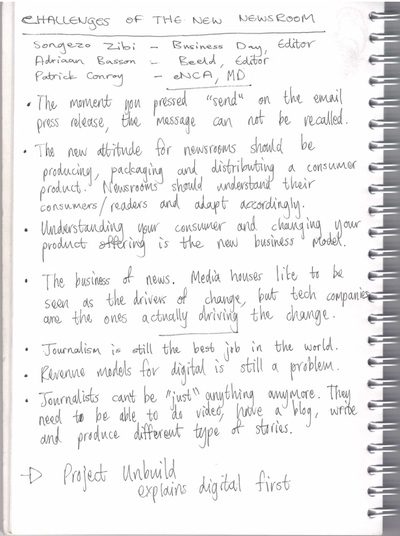
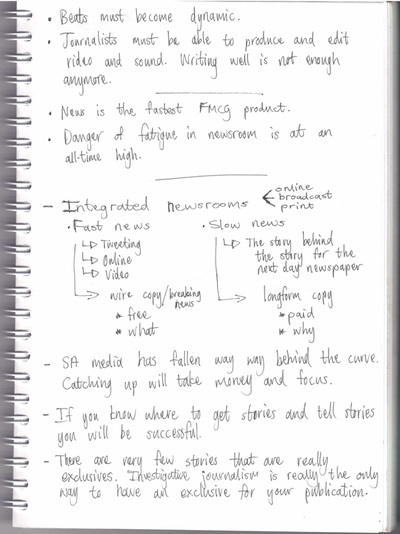
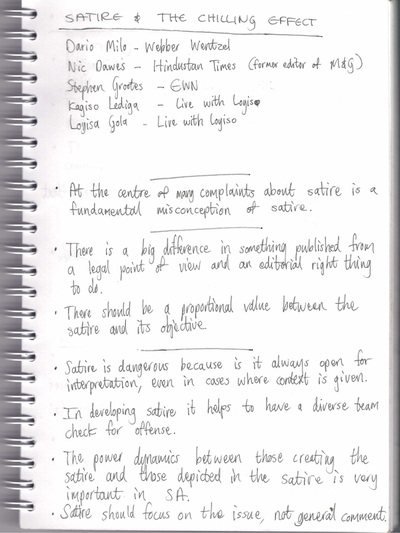
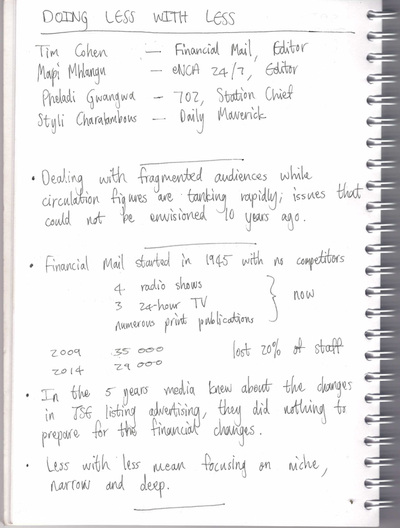
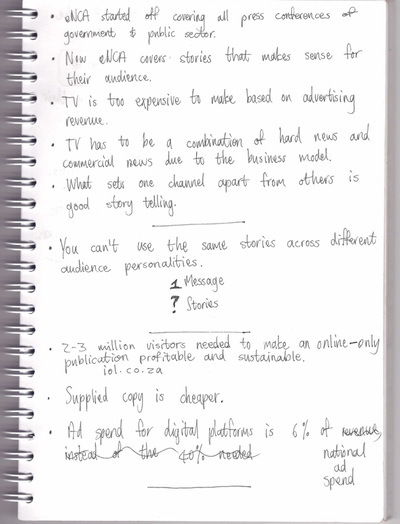
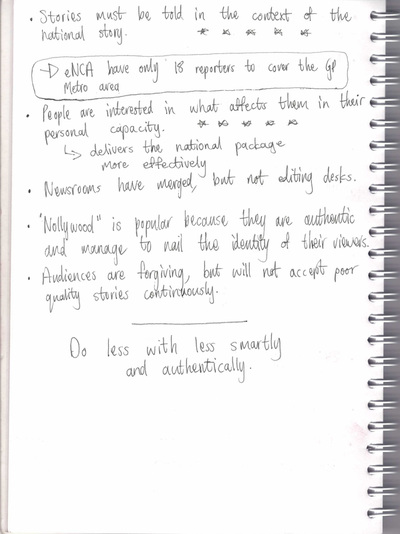
 RSS Feed
RSS Feed